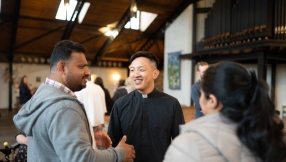
Hundreds of medical professionals have called for an immediate end to "dangerous" early home abortions across the UK.
Before the pandemic, women seeking an abortion had to see a medical professional in person, but when the first lockdown began, the rules were relaxed so that pills could be sent in the post after a phone or e-consultation and taken up to the tenth week of pregnancy.
The scheme is to be wound down in England at the end of August, but Wales has confirmed it will continue home abortions beyond the pandemic.
In an open letter, over 600 medical professionals said that the 'DIY' abortion schemes should be revoked immediately.
"Crucially, the self-administration of abortion pills removes any certainty over who takes the pills, where they are taken, at what gestation they are taken, and whether another adult is present for support," the letter reads.
"Separating abortion from a clinical environment with direct medical supervision has led to the current situation where abortion providers - disturbingly - cannot ensure that the pills they prescribe are taken by the individual they are provided to within the appropriate time frame."
They also warned of an increased risk of medical complications and that self-administration made it impossible to ascertain if abuse or coercion had been a factor.
"This poses a threat to vulnerable women and girls who are at risk from an abusive partner, sex-trafficking or child-sex abuse, as 'at-home' abortion could be used by abusers as a means to more easily cover up trafficking or abuse scandals," they said.
Westminster announced it would be ending early home abortions after 70 per cent of responses to its public consultation supported scrapping the temporary policy.
From 30 August, women in England will be required to have an in-person appointment before they can have an abortion.
Carla Lockhart, MP for Upper Bann, said: "Not only were these permissions granted by the Government without adequate parliamentary and public scrutiny, but they are putting women's physical and mental health at risk.
"Given that seven per cent of British women report having been pressured into an abortion by a husband or partner, it is greatly concerning that the Department of Health and Social Care saw fit to remove the requirement of a routine in-person consultation before an abortion.
"Lack of sufficient ID checks over the online consultation process also poses the threat of pills being falsely obtained for another person, which raises particular concerns regarding cases of underage sexual abuse and trafficking."
Scott Benton, MP for Blackpool South, said: "Without mandatory in-person consultations to verify gestational age and diagnose ectopic pregnancies via ultrasound, a range of complications can occur.
"It is therefore unsurprising that such a strong number of medical professionals have come out in favour of ending this extremely dangerous practice."
According to new polling by the BBC, large numbers of women reported being pressured into taking abortion pills.
In the poll, carried out by Savanta ComRes on behalf of the BBC, 5% of women aged 18-24 and 4% of those aged 25-34 said they had been given something to cause an abortion without their consent. Over one in 10 (15%) of women experienced "pressure to terminate a pregnancy" when they did not want to, while 5% of women said they had experienced "physical violence with intention to force a miscarriage / end a pregnancy".
Dr Calum Miller, medical doctor and Research Associate at the University of Oxford, said: "The best way to recognise victims of coerced abortion is through an in-person consultation. Medical professionals know it, the government knows it, and abortion providers themselves know it.
"Coerced abortion is a serious human rights abuse that the government and doctors have a duty to prevent, not facilitate. It's time we put women's safety before convenience. It is vital that women having abortions should be seen in person for at least a physical examination.
"This is a critical safety measure to check the gestation of the pregnancy and assess for contra-indications and ectopic pregnancies.
"In a country aiming to provide women with world-class healthcare and not merely the minimum standard, ultrasound should also be routine. We should not be failing women by eliminating the checks we have in place to put their safety first."
Spokesperson for Right To Life UK, Catherine Robinson, said: "By removing a routine in-person consultation that allows medical practitioners to certify gestation and recognise potential coercion or abuse, 'at-home' abortion has presented serious risks to women and girls in abusive situations.
"It has allowed severe complications to occur, as well as abortions beyond the legal limit, as abortion providers currently cannot ensure the pills are taken by the intended individual within the appropriate time frame."













